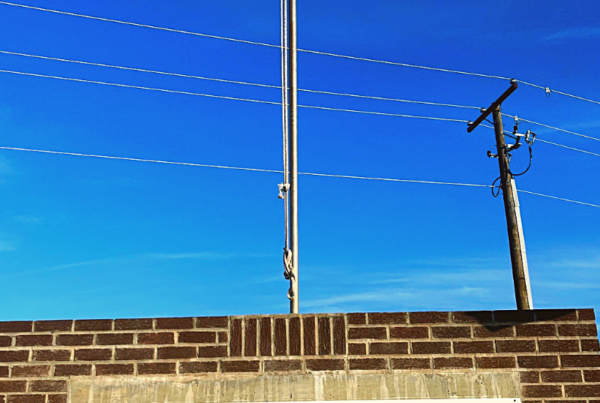KABUL, Afghanistan – Gold. Land. Sexual objects or a spoon from the kitchen drawer. Depending on where one sits, women have long been perceived as pieces of property through the eyes of the Taliban.
But what does the Taliban 2021 really think of women and their role in serving Islam?
“First, women should serve themselves to earn Allah’s satisfaction; they must understand Islamic rulings,” noted Mawlawi Hayat Khan, 49, a Kandahar native and the Imam who serves at the small Sangesar mosque where Mullah Omar founded the Taliban a quarter of a century ago. “They can do jobs like nursing and medicine, jobs that suit them and fulfill the needs of other women. That is how they can serve Islam.”
Khan also emphasized that women should help other women “understand what Islam is, and what is good and bad,” yet they must not preach religion publicly – meaning they cannot take the helm at the mosque. Inside the home and in the presence of close relatives only, women can partially show their face “to certain limits.” But if they do step outside, it should always be with a burqa or face covering, only exposing their eyes.
“Women should not attract men (by showing their face),” Khan tells me unapologetically. “And women should talk based only on need. Otherwise, it is not needed from them to speak.”
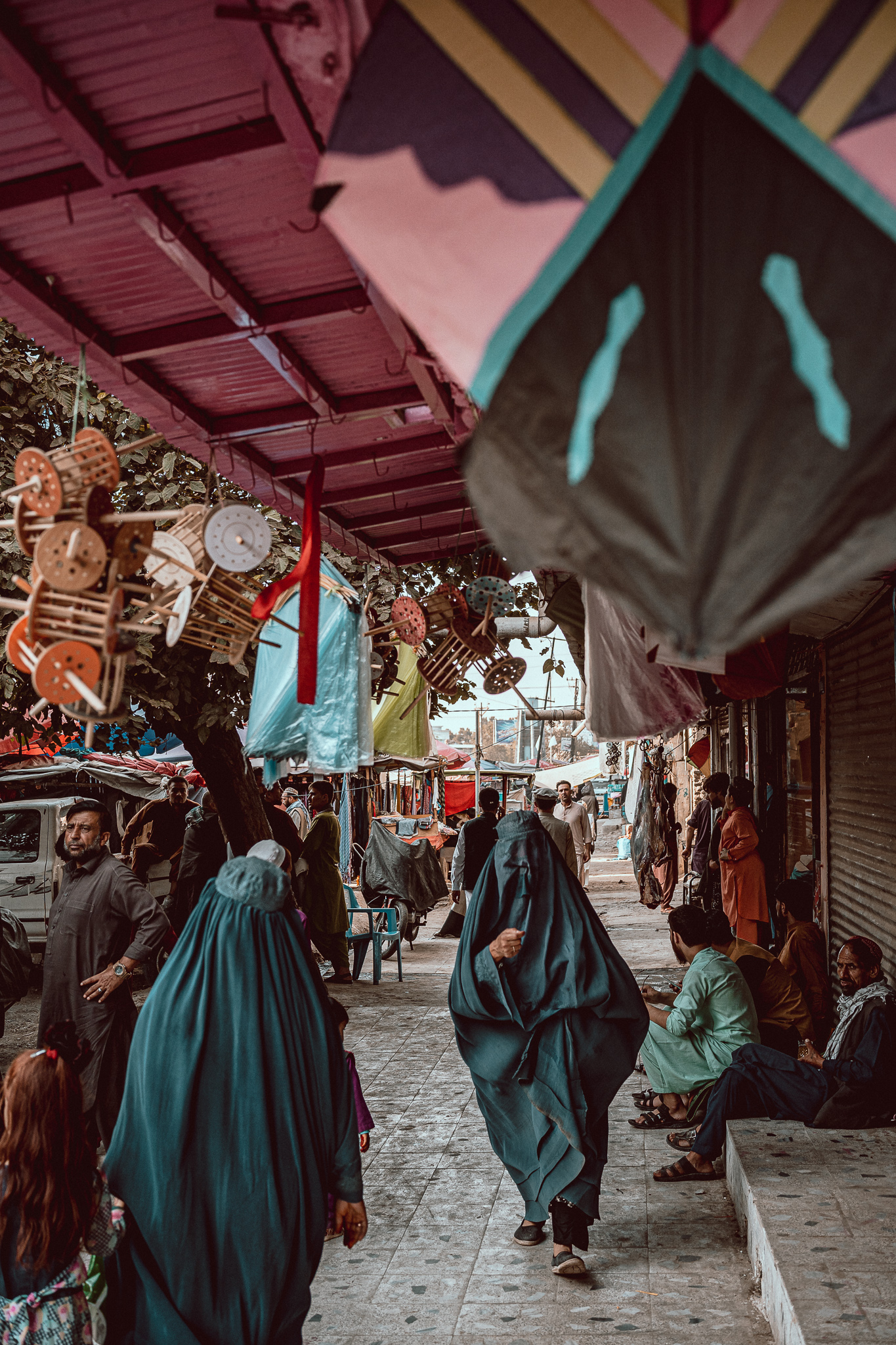
Meanwhile, Mawlawi Noor Ahmad Sayeed, the 40 or 42-year-old Director of Information and Culture in Kandahar, concurred that women “should be educated.”
“If they want to serve Islamic law specifically, they can become teachers, and they can be judges to resolve conflicts. As a mother, she has a family to take care of, and she can guide the family in the right direction,” he explains. “Tell them what’s right, what’s wrong. She can advise the man, big brother and father and advise them to do good things inside and outside the house. So they can work, they can do everything, but under the Islamic Shariah rules.”
Sayeed vows that it is a western misnomer that Islam does not give females full rights.
“Much value is given to women in Islam, which is not provided in western society. Here, women are respected at any given time. Of course, if there is violence at the family level, that is different, but a woman has the right to inheritance, the right to choose her husband, and the right to trade,” he claims. “And a woman is a mother who is very much respected by her children, who listen to everything she says.”
It is also a woman’s fundamental task, Sayeed surmises, to hold her husband’s hand when he is tired, depressed, under pressure, or has been through some form of conflict.
“The woman advises and provides consolation to the man. So whatever worries man has, she will remove them. A woman is a sister who provides confidence to the heart of her brother, handholds her brother and assists him in different jobs,” he continues, gaining momentum. “The important thing is that women are physically not as strong as men. The things men can do physically are very difficult for women to do. Even people in the west know this, and still, they object to Islam and Islamic societies.”
Absolute equality, Sayeed hints, is thus not attainable.
“The west says men and women are equal, but in industrial factories where men and women work, higher wages are paid to men in western societies and on a leadership level,” he says. We can say that America is the mother of democracy, but so far, they have not had a single president who is a woman.”
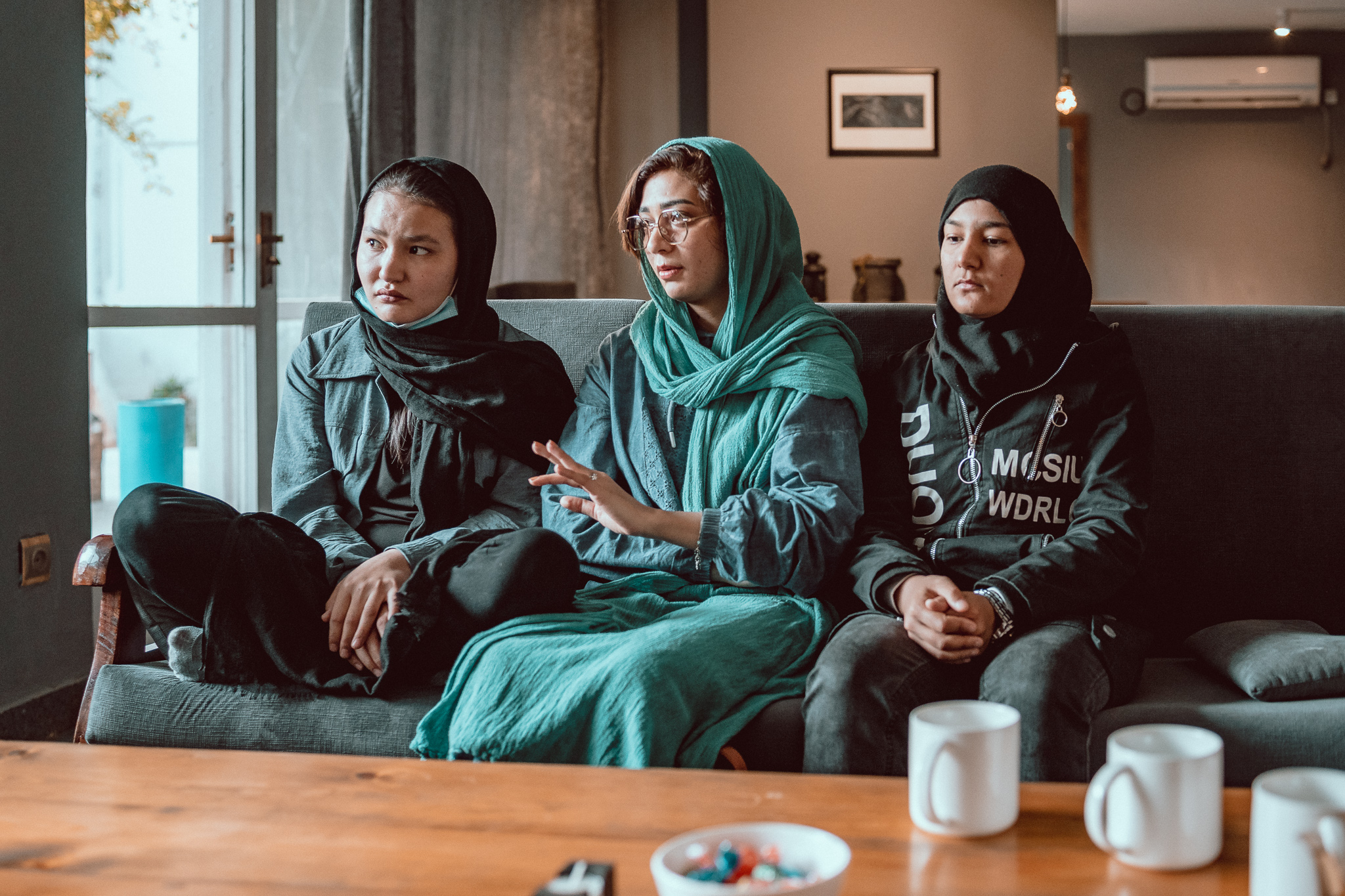
However, under the previous Taliban government, which ruled from 1996 until the U.S. invasion of 2001, the assailment of women was quick and nightmarish. Their voices and faces and ability to dream disappeared.
After taking the power reigns in Kabul, the Taliban almost immediately shuttered the women’s universities and schools. The regime compelled almost all women to quit their jobs, relegating millions to the dank basements of their homes and only to emerge when sheathed by the all-encompassing burqa. For those five years, girls and women only ever saw the outside world from behind the blue nylon netting that covered their eyes and always alongside the watchful glare of a male relative as a chaperon.
A woman spotted with an unrelated man was immediately and publicly flogged with one hundred brutal lashes. Makeup and high heels were banished under the guise that all females should talk and walk softly and were even outlawed from appearing on their balconies or silhouetted through their home windows.
Disabled women suffered immensely, unable to wear the voluminous garment over a prosthetic and unable to hear life go by even with an aid – essentially rendering them to the walls of the home.
The draconian interpretation saw that half the population no longer had adequate access to medical care, leading to soaring mortality rates and the type of suffering that belongs to the graveyard of painful memory. Roughly sixteen percent of women died during childbirth.
Girls also lost their childhoods. The stringent leadership outlawed the innocent entertainment of songs and dolls and books and televisions and toys.
Just as the Taliban now proclaims, its leaders back then prompted that keeping the ladies invisible was all in the name of guaranteeing an Islamic society that kept women safe and sacrosanct. Much of thinking stemmed from the Pashtunwali concept of existing in purdah – meaning “curtain” – defined as “the seclusion of women from public observation by means of concealing clothing (including the veil) and by the use of high-walled enclosures, screens, and curtains within the home.” The practice is believed to have started in Persian society and was adopted by Muslims amid the Arab triumph in Mesopotamia (modern-day Iraq) in the 7th century.
But the foot soldiers of today, those who spent their boyhoods in hardline madrassas and grew up firing AK-47s at the U.S and Afghan government soldiers from inside the rugged terrain, echo such a sentiment.
“Islam has given them (women) certain rights,” says Hamas – who hails from Baraki Barak in Logar province and says he is 25 but joined the Taliban in 2004, meaning he would at least have to be slightly older. “Islam has given them certain rights; they utilize that, and they serve Islam.”
However, Hamas does not seem to be able to articulate anything regarding what those rights may be. Nonetheless, he flicks through his phone to show pictures of his three-year-old daughter, and when I ask if he would want her to marry a Taliban fighter someday, he nods with a wry smile.
“Why not?” Hamas quips.
The Taliban of 2021 – on a public relations spin for global recognition – insist that times have changed.
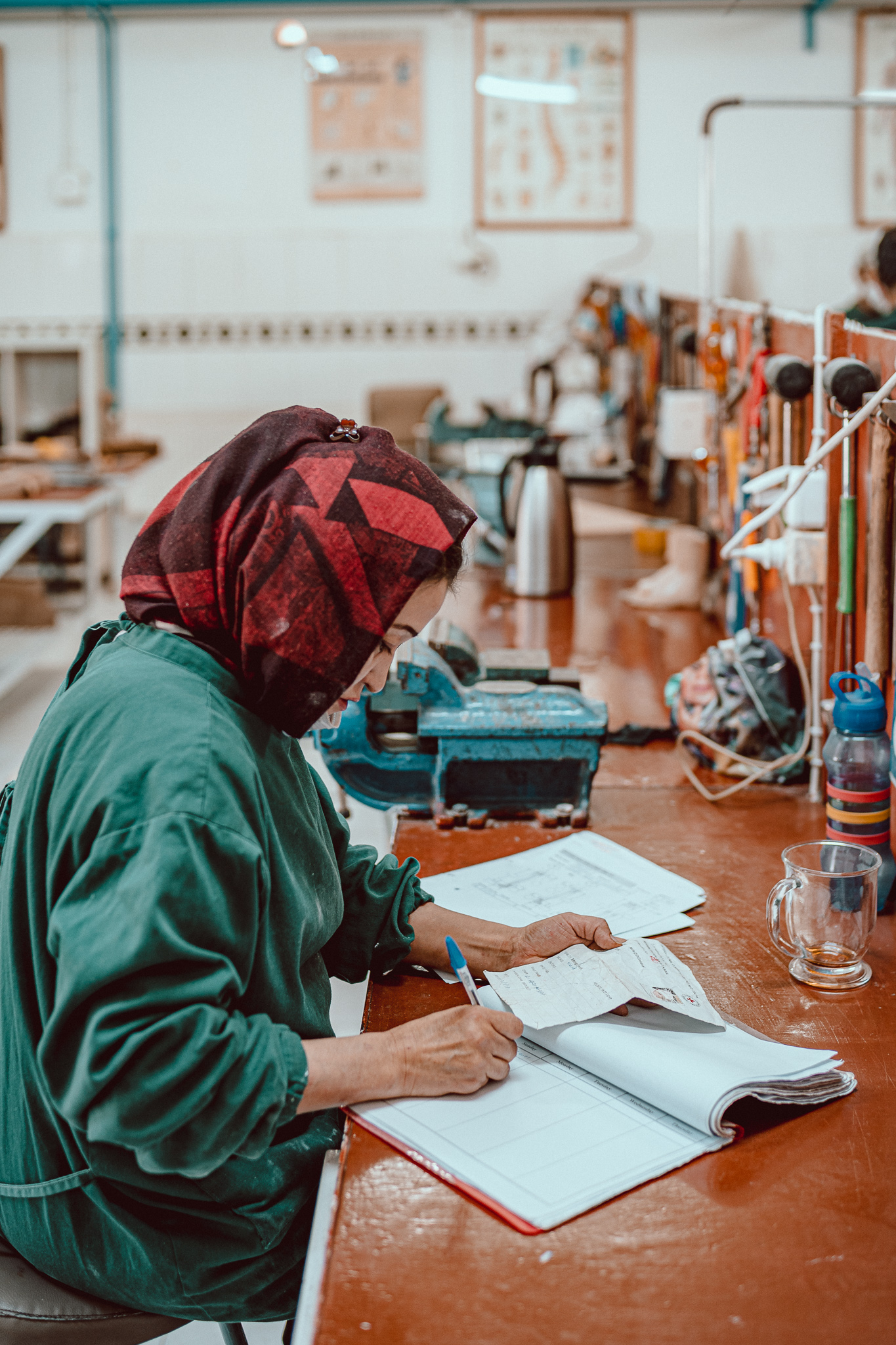
Akif Muhajer, 32, who has taken on the chilling role as the spokesperson for the newly reinstated Ministry for the Propagation of Virtue and the Prevention of Vice – which existed under the previous Taliban reign but was abolished after the U.S. invasion and then brought back only weeks into the 2021 Emirate installment – claims women too must spread the Islamic word.
“There is a verse in the Quran which says that one must bring good people to the goodness and all must not do bad actions,” he summarized. “And it is not only men who should be doing this, but women should also be doing it and invite others to do good things with (Islam).”
From Muhajer’s lens, women play the critical role of being mothers and can serve the way they served during the time of the Prophet and take on school and jobs of the present era.
“Women can go to educational places, they can go to health departments, and they can work and study in those departments,” he quipped.

Nonetheless, at the time of this writing, women in public secondary schools and some universities have been barred from attendance, with no end date in sight. Similarly, their ability to work in offices and positions alongside men has been prohibited.
Muhajer, like much of the more media-trained Taliban top-brass, insists it is all a temporary measure.
“We need women to be police officers to manage other women,” he continues. “And we need women in education, in every department, every department needs a woman.”
Yet the revived Ministry – hauntingly remembered for its morality police that roamed the streets and dished out immediate punishment for minor infractions in dress code or action two decades ago – has taken over the faded building in Kabul that once housed the Ministry of Women’s Affairs.
There is no indication such a department will be brought back.
Yet, under the Emirate, Afghanistan still languishes in a holding pattern, awaiting the formation of a whole government and subsequently a jirga – a group of religious scholars – who will determine all rights in alignment with their Islamic analysis.
Hafiz Habib, deputy minister of the hajj and religious affairs, assures me — somewhat vaguely and without ever looking at me once in the eye – that Islam permits “full rights” to women. However, he vows that women will be included in the important meeting only if they have “achieved the highest level of Islamic knowledge” and that they “should be a full scholar of Islam.”
Nonetheless, critics contend that the binding religious codes within the group have rendered it all but impossible for women to reach the top echelons. This justification will potentially be used to explain why no female faces are seated at the table.
According to the Arab Center DC, there is a broad scope of which the Muslim role can be determined – based on the Quran and Sunnah, the hadith and example of the Prophet – and over the centuries has been colored by “patriarchal traditions.”
When the Qur’an and Sunnah leave an issue unresolved, Muslim scholars resort to ijtihad – the science of interpretations and rulemaking, where they can supplement Islamic Law with local customs,” experts explained. “Naturally, scholars from different communities and schools of thought disagree in their ijtihad, which is unobjectionable as long as these scholarships are based on religious and linguistic knowledge and are conducted piously and in good faith.”
The scholars are also quick to highlight that the “medieval Islamic jurisprudence and the dominant schools in ijtihad adopted today are largely influenced by the patriarchal traditions of their times,” yet alternative non-patriarchal interpretations do exist.
“As many Islamic scholars point out, the Quran instates the principle of equality among all humans. God created men and women from the same soul, as guardians of each other in a relationship of cooperation, not domination,” the center continues. “Liberation and change must come from within the Islamic sphere, where Muslim women have a proactive and autonomous role in reform.”
Nonetheless, the Taliban top-brass have wedged themselves into a tight corner. They understand that in 2021, the international recognition they so desperately crave will only come when girls and women are granted full rights from education to vocation and are not subject to the heavy-handed punishments of the past. Yet, they also know that they cannot risk alienating their conservative, hardline base of support.
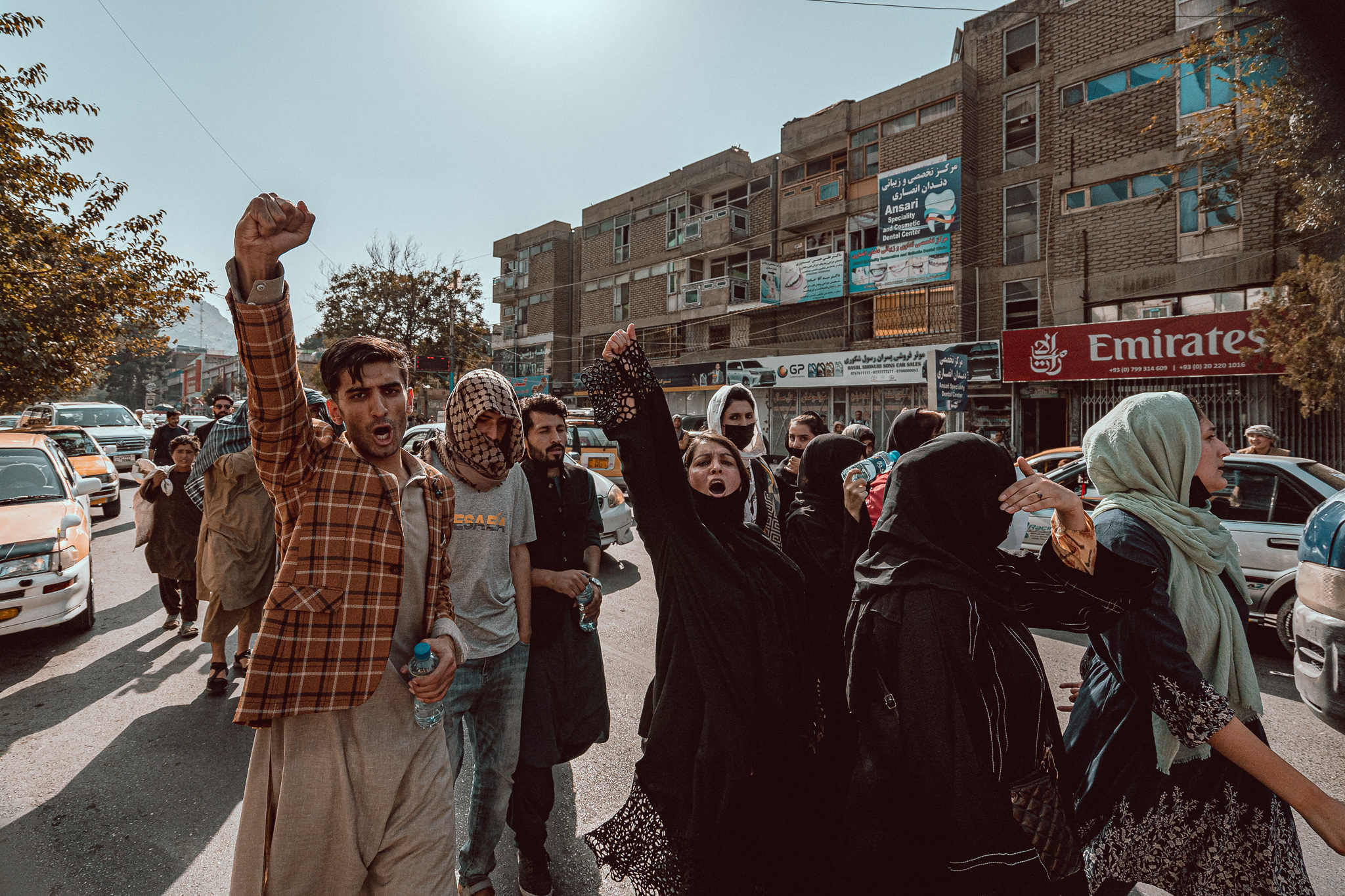
“If we cower too much to the West, we worry our low-level soldiers will defect and become ISIS,” one intelligence official says.
It is, in many ways, a monster of the Taliban’s own making that could very well come back to bite.
And yet, one cannot – should not – turn a blind eye. Afghan women unable to flee find themselves in the flimsy arena of relying on the “international community” to support their fight for rights.
“But these countries, the United States chief among them, are licking their wounds after two decades of military failure, and almost all the way out the exit. They most likely wish they had never seen Afghanistan,” Human Rights Watch observers write. “The countries departing Afghanistan have claimed that they will exercise influence over the Taliban based on the Taliban’s need for development aid or desire for legitimacy and recognition. These may be useful levers — or they may be wishful thinking.”
The global rights body advises carefully targeted sanctions and aid conditionality, in addition to United Nations Security Council actions and involvement from the International Criminal Court (ICC).
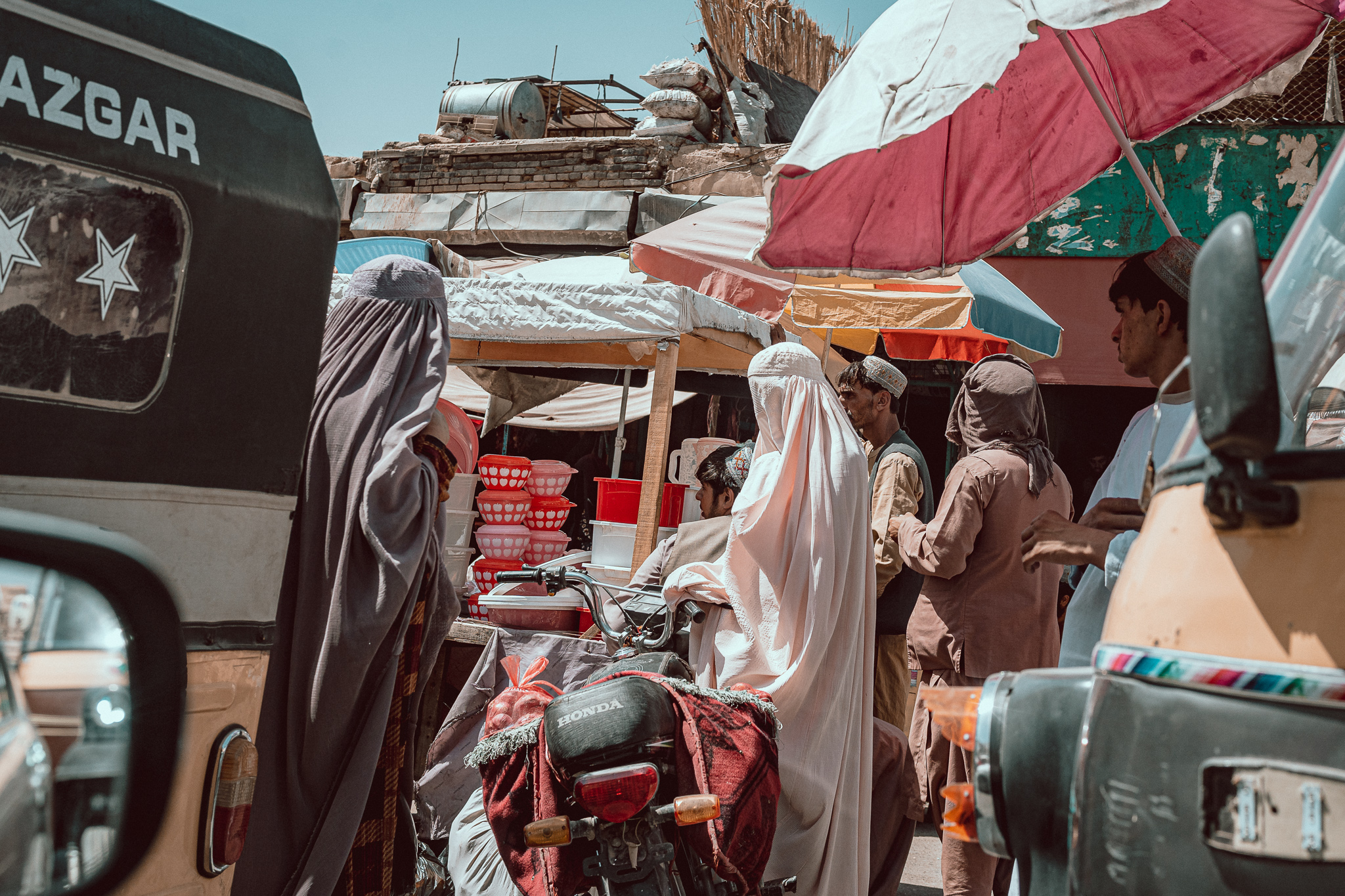
Yet from the viewpoint of many beleaguered Afghan women, the clock has already run out.
“The Taliban should understand that we are not what we were twenty years ago. We will stand for our rights, we want our rights, and we will fight all the way,” argues Soraya Karimi, a 25-year-old national handball athlete, law student and civil society activist. “But even if you try to talk to them, they will look to the side. They will not talk to you face to face. If we don’t leave this country, we will face the same circumstance as our teammate.”
Months before the August Taliban takeover, their teammate Noora – was gunned down by militiamen in the northern province of Sar-e-pol.
“I wanted to become a peace ambassador. We never wanted America to leave because they were keeping the country strong,” Karimi adds. “But now they have left, and our dreams have been shattered.”







